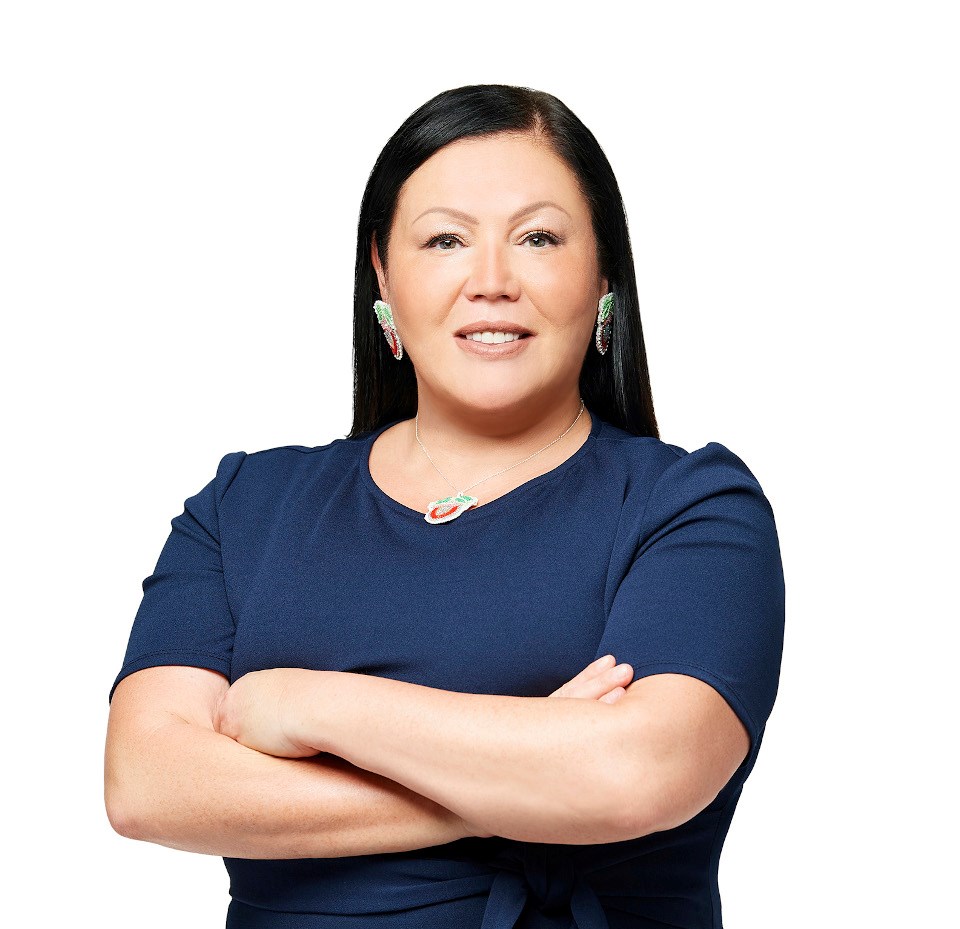Was it her grandmother’s words, or her mother’s organizational skills? Perhaps the combination of both. Add guidance by key voices at pivotal points, and life and learning for Melanie Debassige has led to her to where she is today.
Mom, leader, influencer, member of the Anishinabek Nation, Debassige has earned an MBA, completed the director’s education program at the Rotman School of Management, and earned a Institute of Corporate Directors designation.
She believes strongly that these educational steps afforded her insight into how to build better boards of directors, and more equitable and representative leadership.
“This is important for the future of communities across Canada and the country as a whole," said Debassige, a member of M'Chigeeng First Nation on Manitoulin Island.
“I’m a mother and a professional. I’m mom leader. It is my first job. Yes, you can quote me on that,” she laughs.
With her youngest son at home, there is still that very important role.
“Jude is going to turn 16 at the end of the month. High school is a little challenging, especially right now during the pandemic. I’m trying to give him opportunities, but also emphasize how important it is that he retain his culture. He’s a really amazing kid.”
Since her appointment to the Ontario Clean Water Agency board of directors in 2013, she has led an increasingly active professional life. Many people encouraged her to join boards of directors because it could create positive changes.
“I was able to do the work and have a passion to do this. It is a natural fit. The work I am doing all ties together.”
As executive director of the Ontario First Nations Technical Services Corporation for the last three years, Debassige has encouraged First Nations youth to consider career prospects in STEM fields (science, technology, engineering and mathematics).
“We promote awareness and opportunities for Indigenous youth in technical jobs. We train water operators for one.”
Knowledge has the potential to change everything. A believer in micro-credentials and micro-accreditation, she and her staff are working with Wilfrid Laurier University to get courses and training in skilled trades recognized.
“The power of learning. My own post-secondary journey started in ’95. I was in southern Ontario and attended Six Nations Polytechnic. It’s like a university transition program. Then at Trent (University) I took native management and economic development – such great professors – and a transfer to Western (University).
“In the late '70s and early '80s, I had no idea growing up of what was going on in Indian Country in terms of politics. My father’s name was put forward for candidacy as president for what was then called the Union of Ontario Indians. He had some really great people working with him. He then went on to win an election as National Chief of the Indian Brotherhood.”
Debassige learned a lot from his sharing of his journey that began in a tuberculosis sanatorium and residential schools.
Three years ago she joined the Board of Reconciliation Canada and she has recently been appointed to the inaugural board of the Canada Energy Regulator.
She is one busy person. Perhaps it is natural as she has very active people as her own role models.
“I hold Gwen Point in high esteem and others from British Columbia like Mary Ellen Turpel-Lafond.”
Turpel-Lafond is the former B.C Representative for Children and Youth, while Dr. Gwen Point is a respected Stó:lō leader, who has served on various education, children and family provincial boards.
Other influential figures to Debassige include Linda Staats, chief executive officer of Six Nations Polytechnic, and Dawn Madahbee Leach entrepreneur and business leader from Aundeck Omni Kaning First Nation.
In 2019, Debassige was named as one of Canada’s Most Powerful Women by the Women’s Executive Network.
“There is a network of support and advice. I am in my mid-40s and I think about my past, present and future – I wonder what is next? I’ve held a provincial crown agency appointment for the last eight and a half years. I was the first Indigenous woman appointed to a committee of the Ontario Clean Water Agency. I’ve set up an Indigenous advisory circle, been appointed chair of the governance committee.”
Asked how it is to be an Indigenous influencer, Debassige responds: “I don’t always think about it that way. I have to walk in two worlds. I’m a strategic thinker I don’t think next year. I think 10, 20 years out. Where do we want to be? What do we have to put in place now to get there? We must always look to the future. Changing the nature of boards of directors and increasing diversity now will have great positive impact decades from now. It is the right thing to do.”
Is Debassige mentoring others now?
“I’ve encouraged many others throughout my professional career. I am always mentoring somebody. All of this is informal. Maybe I need to post more to encourage people to keep going. I try to be a role model, to break hesitancy. I like to think I am touching others. They can take my advice, but they might not be ready for it, yet.”
This is one in a series of articles profiling recognized leaders from Indigenous communities across Northern Ontario, who stand out for the contributions they’re making on local, regional, and international levels.
